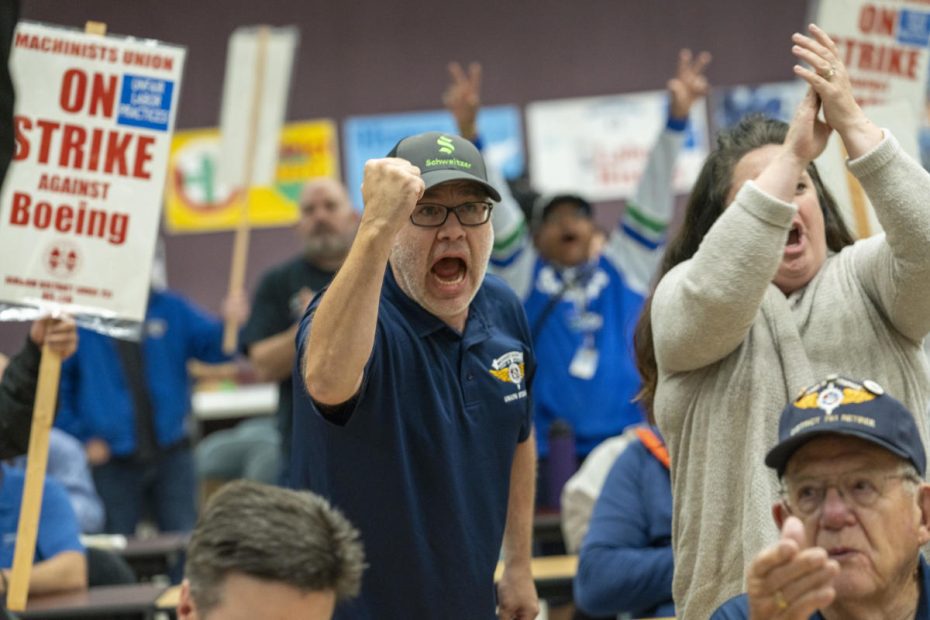Boeing machinists voted Wednesday to reject a new labor contract proposal and continue a costly weekslong strike that halted production of some of the embattled company's best-selling planes, resulting in furloughs and layoff notices for thousands of workers.
The International Association of Machinists and Aerospace Workers announced on social media that 64% of its members voted in favor of the deal.
“The strike will continue at all designated picket locations,” the union said.
The vote comes more than a month after 33,000 union members overwhelmingly rejected a negotiated offer walked away the track on September 13.
The IAM had said on Saturday that it had reached a preliminary deal with Boeing that included cumulative increases of almost 40% over four years, significantly more than the previously negotiated offer.
The new contract offer also includes a $7,000 ratification bonus and increased company contribution to retirement plans. It did not bring back defined benefit pensions that were frozen a decade ago and to which many wanted to return.
Contract talks collapsed earlier this month, but the company and union resumed negotiations in recent days, with Julie Su, the acting labor secretary, traveling to Seattle to meet with both sides.
If the workers had voted to accept the contract offer, they would have had to return to work on October 31, according to the union.
Boeing cannot produce new 737s as long as the strike that has closed assembly plants in the Seattle area continues. One large Boeing aircraft, the 787 Dreamliner, is manufactured at a non-union factory in South Carolina.
As machinists cast their ballots, Boeing reported a massive third-quarter loss of more than $6 billion, with the aircraft manufacturer hit by the five-week strike and charges related to its commercial aircraft and defense programs.
Boeing is struggling to right itself after production problems and multiple federal investigations following a plane crash panel burst in January.
In August the company Kelly Ortberg brought ina seasoned aerospace executive, as the new CEO with the mandate to solve Boeing's safety and production problems. Ortberg, who announced this earlier this month job losses of 10% of the company's workforce, or 17,000 employees, wrote in prepared remarks he gave to investors on Wednesday that Boeing is “at a crossroads.”
“Confidence in our company has been eroded,” he wrote. “We have had serious shortcomings in our performance across the business, which have left many of our customers disappointed.”

